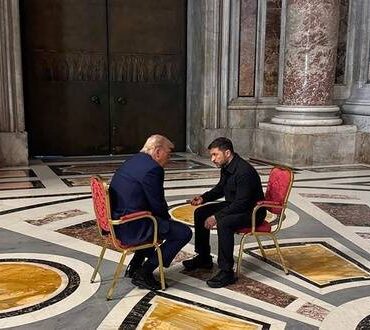The staff of Tirad Pass and the pilgrimage of Filipino voters

There is a place in Ilocos Sur, in the western foothills of the Cordillera range, where history breathes, and where the wind carries the memory of sacrifice. Tirad Pass is the high, narrow trail, where, on Dec. 2, 1899, a boy general named Gregorio del Pilar made his last stand for a dream greater than himself—the dream of a free Filipino people.
One hundred years later, in 1999, on a solemn pilgrimage to that sacred place, something extraordinary occurred. Dr. Consolacion Alaras of the University of the Philippines, finding herself lost along the rocky trail to the summit, heard a voice call out through the mist: “Conie! Conie!” Startled, she turned and saw an old man—silent, ageless—standing by the path, holding a simple wooden staff.
Without a word, except a gentle instruction: “Take this. Use it for the ceremonies. And when the time comes, pass it on.”—he placed the staff into her hands. Then, gesturing toward the path, he walked away and disappeared, never to be seen again.
Conie found her way to the summit. With the staff in hand, she fulfilled her ceremonial role. Then, in a gesture full of grace and meaning, she turned to me and passed the staff on. That wooden staff, now standing like a sentinel near the entrance of my home in La Vista, Diliman, is more than a relic. It is a call—to remember, to reflect, and to renew.
The staff of Tirad Pass is not merely a piece of wood. It is a symbol: of sacrifice offered without counting the cost, of empathy for a nation struggling to find its way, of love that asks nothing in return. It carries the spirit of Del Pilar and his men—and in a deeper sense, the spirit of every Filipino who has ever loved this country enough to endure and suffer for it.
As the elections approach, the staff calls once again. It invites every Filipino to a pilgrimage of the heart. It summons us to remember that freedom was paid for with blood, that the right to choose leaders was bought with lives, and that to cast a vote is not just a political act—it is a sacred trust.
We walk now in the footsteps of heroes. Rizal, who taught us that the future belongs to those who cultivate both mind and heart. Bonifacio, who showed that the love of country is worth more than life itself. Aguinaldo, who struggled to forge a nation against overwhelming odds. Mabini, who taught that true strength is moral, not merely physical.
The way up is not easy. There are rocks of temptation, crossroads of confusion, and storms of doubt. There are whispers that say: “It is hopeless; all are the same.” But the staff reminds us: there are moments when a single act of courage, a single right choice, changes everything.
There is a rhythm at Tirad Pass, like the heartbeat of the mountains: quiet, steady, eternal. In the mist and trees, in the wildflowers clinging to the cliffs, the spirit of Del Pilar and his men still stirs. They ask us: Will you also take a stand? Will you also carry the dream forward?
When you cast your vote, cast it like a soldier on the mountain—with clear eyes, pure heart, and steady hand. Cast it for the country, not for yourself. Cast it for the children not yet born, who will inherit the future you choose today. The staff of Tirad Pass points the way.
Choose leaders who serve humbly and carry the people’s dreams as their own. Choose leaders who, like Del Pilar, will not run from the hard battles. Choose leaders who understand that leadership is a form of love—the highest and hardest form. This is your Tirad Pass.
This is your pilgrimage.
Cast your vote like a soldier of love. Cast your vote like a Filipino.
DR.PABLO S. TRILLANA III,
Lucius Littauer fellow awardee

















The flight that outran the courts